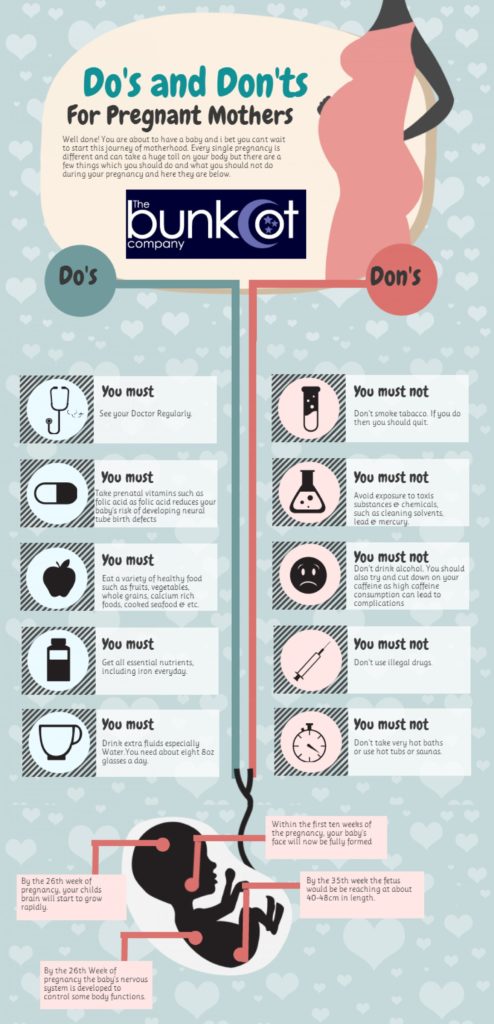1. Don’t forget breakfast. Try fortified ready-to-eat or cooked breakfast cereals with fruit. Fortified cereals have added nutrients, like calcium. If you are feeling sick, start with whole wheat toast. Eat more food later in the morning.
2. Eat foods with fiber. Choose a variety of vegetables and fruits, like carrots, cooked greens, bananas, and melon. Eat plenty of beans and whole grains. Try brown rice or oatmeal.
3. Choose healthy snacks. Low-fat or fat-free yogurt with fruit Whole grain crackers with fat-free or low-fat cheese
4. Take a prenatal vitamin with iron and folic acid every day. Iron keeps your blood healthy. Folic acid helps prevent birth defects.
5. Eat up to 12 ounces a week (2 average meals) of fish or shellfish. A 3-ounce serving is about the size of a deck of cards. Avoid fish and shellfish with high levels of mercury. Don’t eat shark, swordfish, king mackerel, or tilefish. If you eat tuna, choose canned light tuna. Albacore (white) tuna has more mercury. Common fish that are low in mercury include shrimp, salmon, and catfish.
6. Stay away from soft cheeses and lunch meat. Some foods may have bacteria that can hurt your baby. Don’t eat: Soft cheeses like feta, Brie, and goat cheese Uncooked or undercooked meats or fish (like sushi) Lunch meats and hot dogs unless they are heated until steaming hot
7. Limit caffeine and avoid alcohol. Drink decaffeinated coffee or tea. Drink water or seltzer instead of soda. Don’t drink alcohol.







